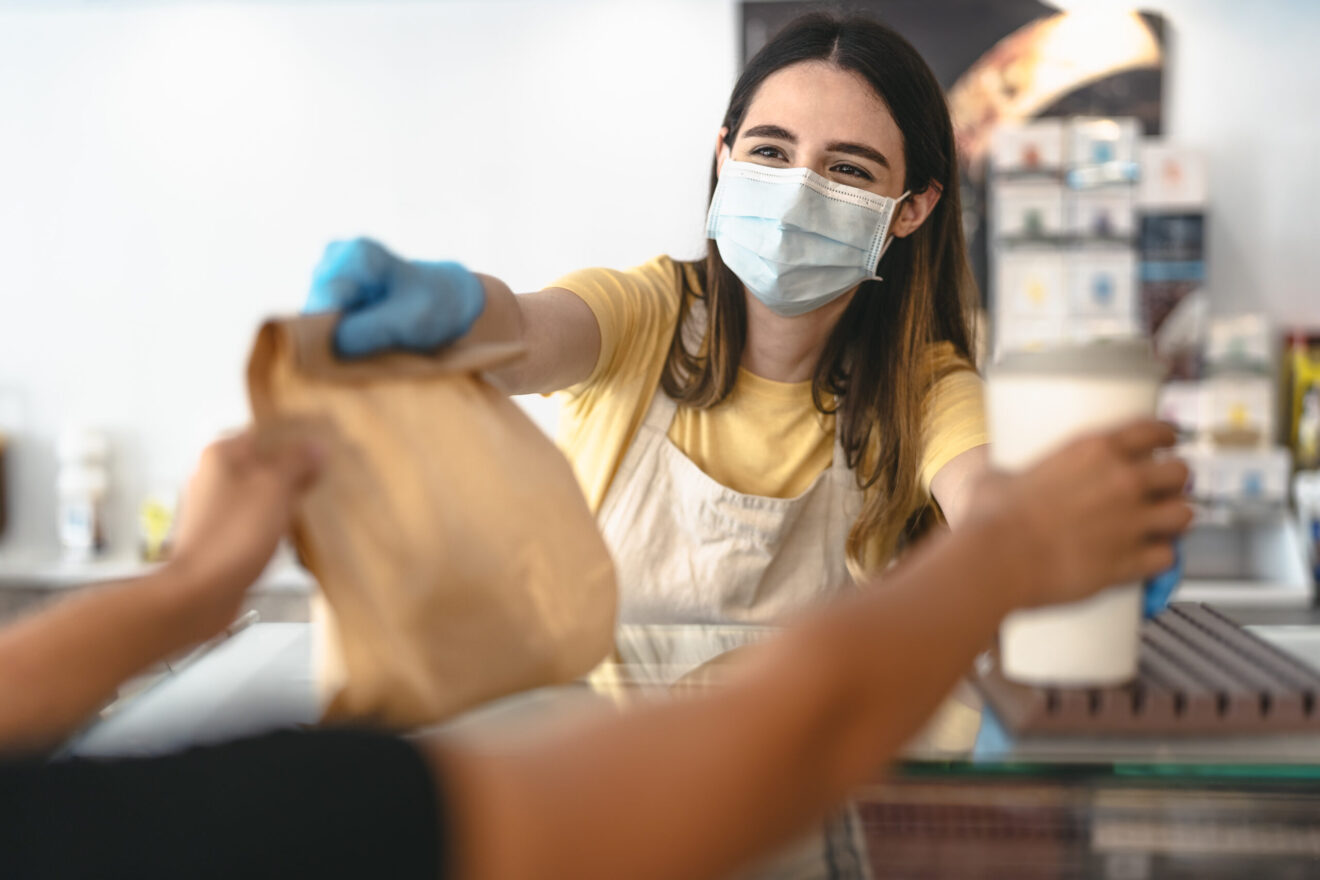This post is sponsored by Lobster Ink.
Food safety is a key pillar of any foodservice or hospitality operation, and this is especially true today as operators adopt heightened hygiene protocols amid the pandemic. However, food safety standards are only as strong as the training that enforces them. Traditional training programs can leave some employees behind, allowing best practices to fall by the wayside when the pressure is on.
To counteract this, Lobster Ink teamed with Ecolab to create Essential Public Health, an interactive online training for front-line teams. In this interview, Ecolab’s Mandy Sedlak discusses the importance of proper food safety training and what makes the Lobster Ink model so effective.
What is the biggest challenge when it comes to food safety training for front-line teams today?
Time and turnover are the first that come to mind. Finding the time for employees to sit through 1:1 or long training lessons to completion is difficult and high turnover means the training needs to be repeated often.
People quit, employees are let go, life outside of work gets hectic. When resources of people and time are short, it can affect the quality and effectiveness of training.
Restaurants are a fast and constantly changing environment. People and time are a valuable resource and the Lobster Ink program takes both into consideration. The lessons are short. They don’t require someone to sit down and page through material, they are designed for people in the food service environment and on the go. Learners can take the lessons when they have time, not just when they are scheduled. The learner is taught and tested through different approaches and it’s all designed specifically for their position. The training pertains to them and keeps the learner’s interest.
How does the Lobster Ink program differ from traditional food safety programs?
The lessons are short and engaging, easy to remember and relate to. The Lobster Ink program doesn’t just provide food safety knowledge to the individual taking the lessons, it puts the knowledge into action. The learner sees food safety behaviors in action, learning positive behaviors by example. It’s not just the what, it’s the how, why and where that push the learner from capturing the knowledge and then correlating it to behaviors. And it’s not just a one time training. It can be repeated, consistently and often for both onboarding and ongoing training.
How can the Lobster Ink program be adapted for different areas of foodservice, and how does it tailor training to different roles and levels of seniority within one operation?
The Lobster Ink program is grounded in science-based food safety principles that are explained in a practical manner. The content can be applicable for FSR, QSR and food retail environments.
The manager oversight courses give the manager or person in charge the tools and best practices to lead by example and take corrective action when needed. Monitoring the process and acknowledging good and poor behaviors and taking corrective action is crucial to the ongoing success of a positive food safety culture.
How can this approach to training help create a culture of food safety within an organization?
A positive food safety culture is extremely important because it shows the value and commitment of the team. To have a positive food safety culture, people need to understand why it matters and — more importantly — why it matters to them. They are taught that they have the choice to make good food safety choices and they have investment in the brand. The Lobster Ink training program explains to the learner the implications of poor food safety behaviors. Essentially, their actions can also affect their coworkers and the guests. They will learn that a safe environment positively affects the guests, the restaurant and themselves.
Learn more about Food Safety Fundamentals, including a curriculum overview and lesson examples, on Lobster Ink’s website.
Mandy Sedlak is the food safety and public health manager for Ecolab’s EcoSure business. She provides technical and practical expertise in food safety and is responsible for supporting customers compliance, establishing and maintaining standards and driving QA progress through systems, solutions and interventions in operations, health department compliance, and foodborne illness response. She also provides education and recommendations to help customers adopt best practices and mitigate risks in their day-to-day operations in an ever-changing food safety landscape.
